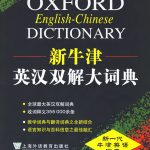Recent articles about how to learn Mandarin Page 43
-
Want to master Chinese in no time? Start dreaming!*
This article is about a new revolutionary way of learning Chinese (or any other language) without actually spending more time. It has huge potential, but needs more thorough research before it can be released commercially. If you want to get in on the secret earlier, don’t miss this week’s article. Only valid today!
Read → -
Is your flashcard deck too big for your own good?
If you use spaced repetition software like Anki for learning Chinese and do so for a few years, you will end up with a very large flashcard deck. Some people advocate deleting the deck if it becomes too big. This article looks closer at the pros and cons of keeping large decks and why you might want to consider starting over from scratch.
Read → -
You shouldn’t walk the road to Chinese fluency alone
The road to Chinese mastery is long, but fortunately, you don’t have to walk it alone. This article describes four different kinds of people and how they will help you to master Chinese: the local, the traveller, the supporter and the guide. They all have their different strengths and you should learn what they are in order to make the journey as smooth as possible.
Read → -
14 extra songs to learn Chinese and expand your horizons
This is the fourth and possibly final article about Chinese music. As before, the goal this time is to expand your horizons a bit and help you find music you like. Music is useful because it’s fun and is a relaxed way of learning. We need learning of all kinds if we want to learn fast, so music fulfils a really important function.
Read → -
Hacking Chinese site update March 2013
As frequent readers might have noticed, I have changed several things on Hacking Chinese recently. The changes have been gradual, so I thought I’d summarise what’s happened recently. If you think there’s anything else I should fix on the website, let me know! I would also be very grateful if people could check out the new features and functions and see if they are working properly.
Read → -
21 essential dictionaries and corpora for learning Chinese
There are many online resources for looking up Chinese characters and words, so many that it might be very hard for new learners to find what they need. This article introduces 21 dictionaries and corpora for Chinese learners, including what they should be used for in addition to some pros and cons.
Read → -
Horizontal vocabulary learning in Chinese
The normal thing to do when we learning characters or words is to focus on deepening our knowledge, researching components and understanding more about what we’re trying to learn. Some problems can’t be alleviated this way, however, instead they call for horizontal vocabulary learning, i.e. to putting the character or word into context and to compare it with similar characters or words. Only then can we grasp the bigger picture.
Read → -
Hacking Chinese meet-up in Taipei 2013-03-02
I’ve been in Taiwan for almost six months and even though I have met some people I previously only knew over the internet, I still haven’t arranged a proper Hacking Chinese meet-up. Time to change that! The first meet-up ever is planned for next Saturday (March 2nd) and will be held in Taipei.
Read → -
The Cthulhu bubble and studying Chinese
What does learning Chinese have to do with the Cthulhu Mythos? Quite a lot, actually. This article is about your bubble of safety and what happens when monsters (weird, difficult cases) appear and what you should do to avoid insanity. In short, don’t poke the monster in the eye; when encountering strange cases, either ignore them or memorise them, don’t waste time understanding everything you hear or see.
Read → -
Improving your Chinese by translating from another language
I think translation is one of the best ways of improving writing ability. Translation forces you into linguistic environments you wouldn’t have ended up in if you wrote the article yourself. This article is about how translation can be used to improve your written Chinese.
Read →




